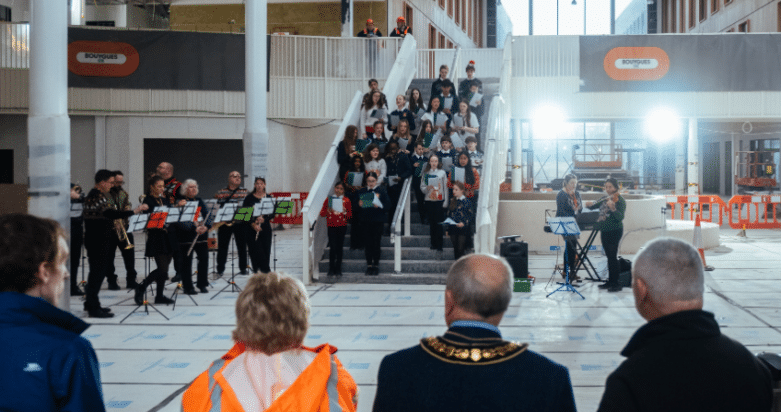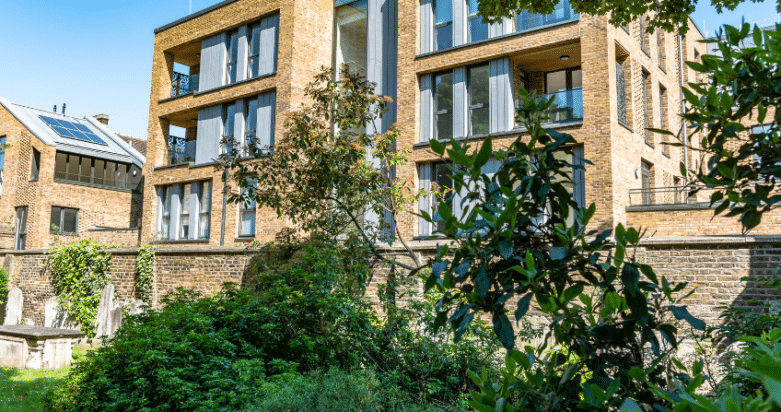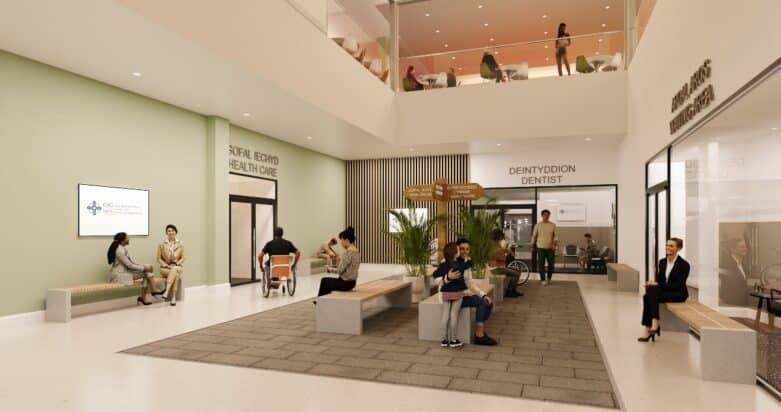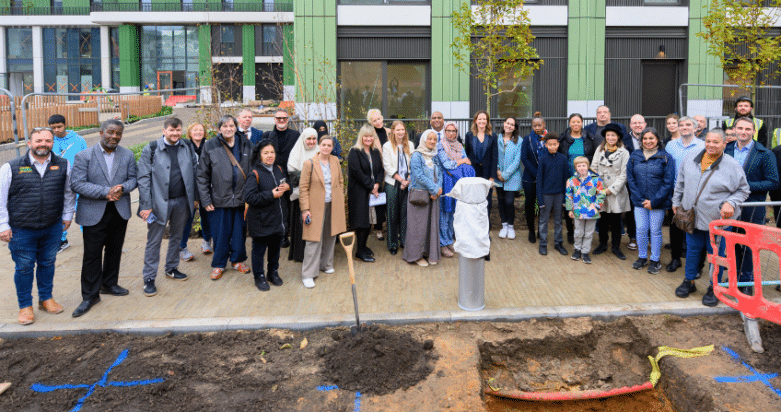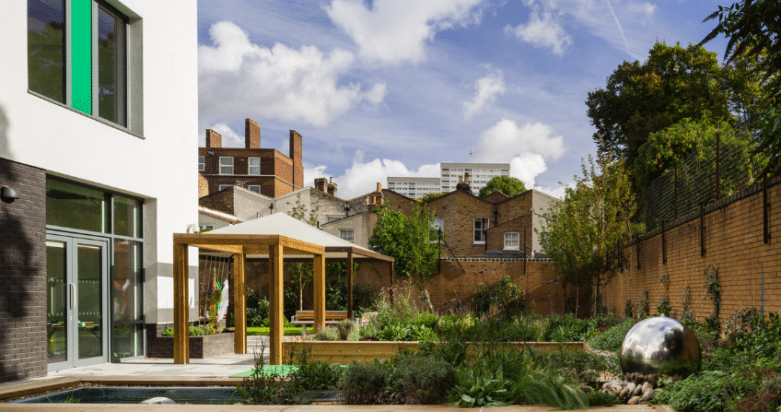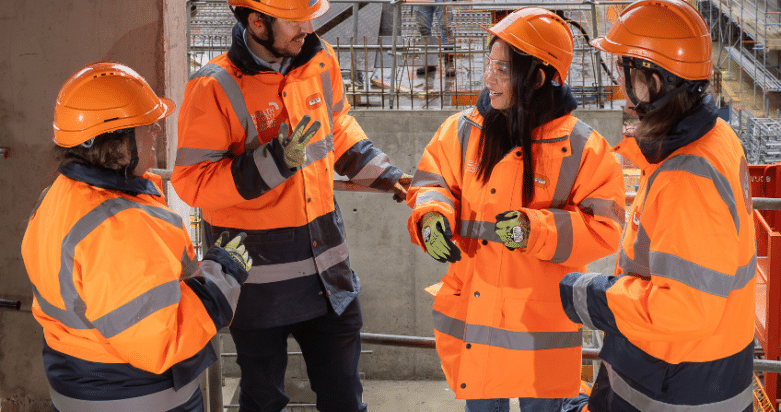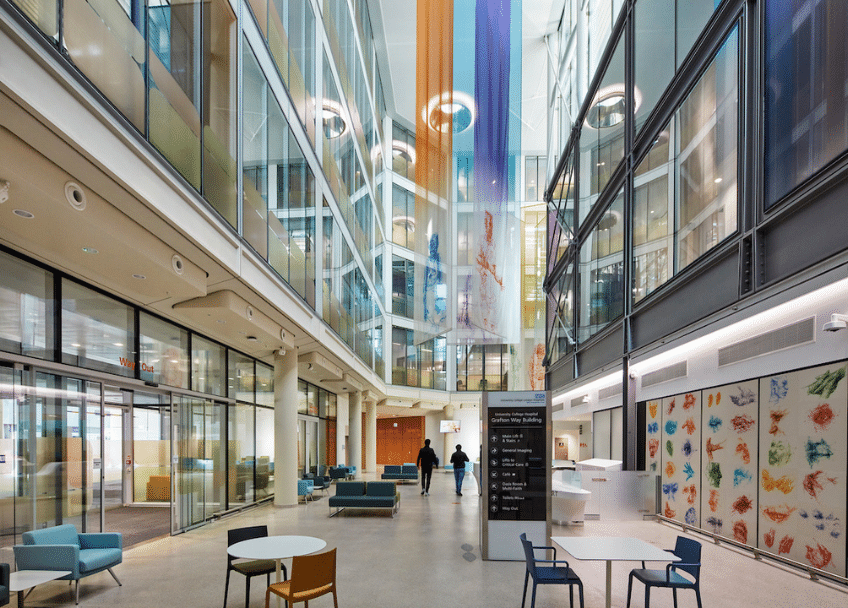
Exploring Smart Systems that Enhance the Patient Experience
Author
Colin Boyd
Design Director
The healthcare industry is undergoing a significant transformation, driven by rapid advancements in smart technology and digital innovation. As we build the hospitals of the future, it is essential to integrate these technologies to enhance patient comfort, improve communication, and boost engagement. At Bouygues UK, we are at the forefront of this transformation, applying our expertise in construction to create smart hospitals that are not only efficient but also patient-centric.
Enhancing Patient Experience through Smart Technology and Systems
Smart technology refers to devices and systems that utilise enhanced solutions like artificial intelligence (AI), the Internet of Things (IoT), and connectivity to provide functionalities previously unavailable. These technologies are revolutionising healthcare by enabling remote monitoring, connected emergency response solutions, smart hospital management, and more.
Smart hospital management systems play a crucial role in improving the patient experience by optimising resource management and operational efficiency. For example, the way in which IoT-enabled systems track the usage and availability of medical equipment ensures that resources are always available when needed. This reduces waste and enhances the overall efficiency of hospital operations.
Developments in AI are further enhancing patient care by enabling faster and more accurate diagnostics. AI algorithms can analyse vast datasets to identify potential health risks and suggest preventive measures, allowing healthcare providers to make informed decisions quickly. Additionally, AI-driven chatbots and virtual assistants, despite the negative feedback they sometimes receive, are ultimately improving patient engagement by providing near-instant responses to queries and basic medical advice.
Mobile Health (MHealth) applications are empowering patients to actively participate in their own healthcare. These apps allow patients to track health metrics, manage medications, book appointments and access other telehealth services from their smartphones. This level of accessibility and engagement is transforming healthcare into a more personalised and patient-centric experience.
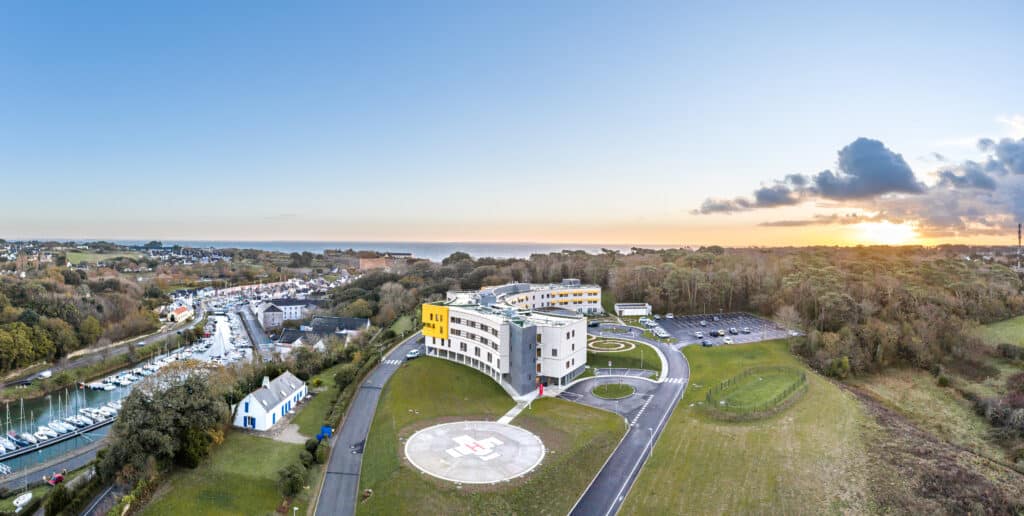
Humber River Hospital: A Benchmark for Smart Systems and Digital Transformation
Humber River Hospital in Canada exemplifies the potential of fully integrated digital systems in healthcare. In 2015 the hospital transitioned from being outdated in its operation to becoming North America’s first fully digital hospital.
Plan Group, Bouygues UK’s sister company in North America, delivered the digital solution for the hospital. The transformation of this facility involved the integration of various smart technologies, from automated workflows for lighting and temperature control to real-time location systems (RTLS) for tracking patients and assets.

The hospital’s digital infrastructure now includes a fibre network, structured cabling, building automation systems, and a range of patient-centric technologies such as unified communications and nurse call systems. This integration ensures that healthcare providers have access to the right information at the right time, significantly enhancing patient care and operational efficiency.
Oriel: A Vision for the Future
Closer to home in the UK, the Oriel project represents a significant step forward in integrating smart technologies into healthcare facilities.

Bouygues UK is currently constructing a cutting-edge eye care, research, and education centre in Camden called Oriel. This scheme will unite the expertise of Moorfields Eye Hospital, the UCL Institute of Ophthalmology, and Moorfields Eye Charity, promoting collaboration and innovation. Drawing on a decade of experience in delivering Smart Hospitals, Plan Group’s lessons learned are being applied to ensure the successful delivery and integration of smart technology into this project.
The design of Oriel is being informed by patient feedback to ensure accessibility and comfort with elements such as wayfinding, navigation, acoustics, and lighting incorporated to promote confidence and independence for the patients and healthcare professionals using the facility. The building is also designed with flexibility in mind, allowing it to adapt to future technological and medical advancements. Future-proofing the facility through its design ensures that Oriel will remain at the forefront of eye care and research for years to come.
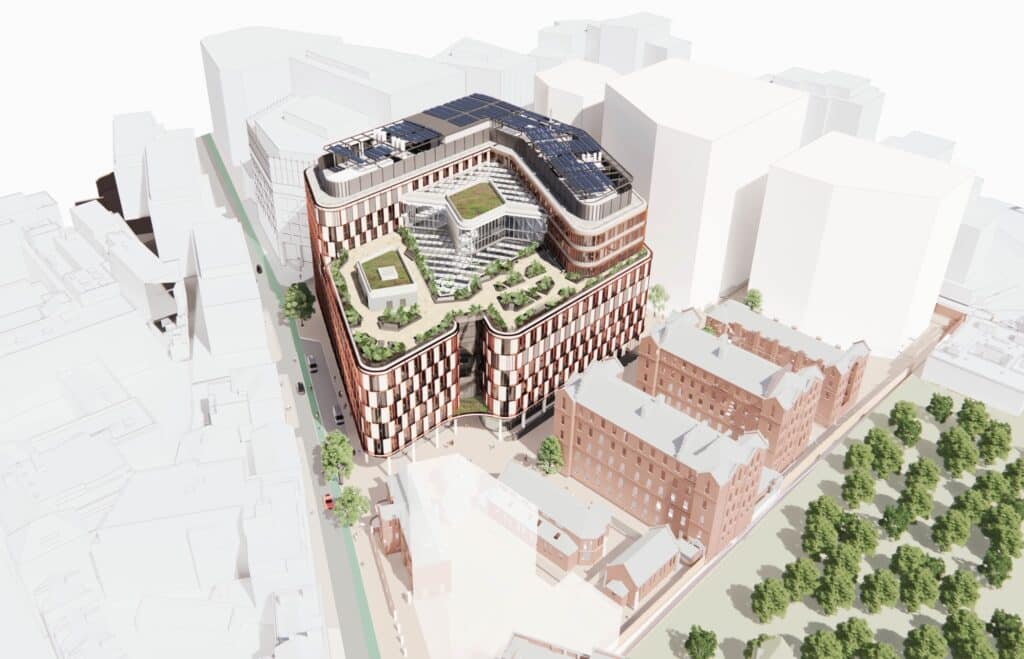
Bouygues UK’s Approach to Delivering Smart, Patient-Centric Healthcare Infrastructure
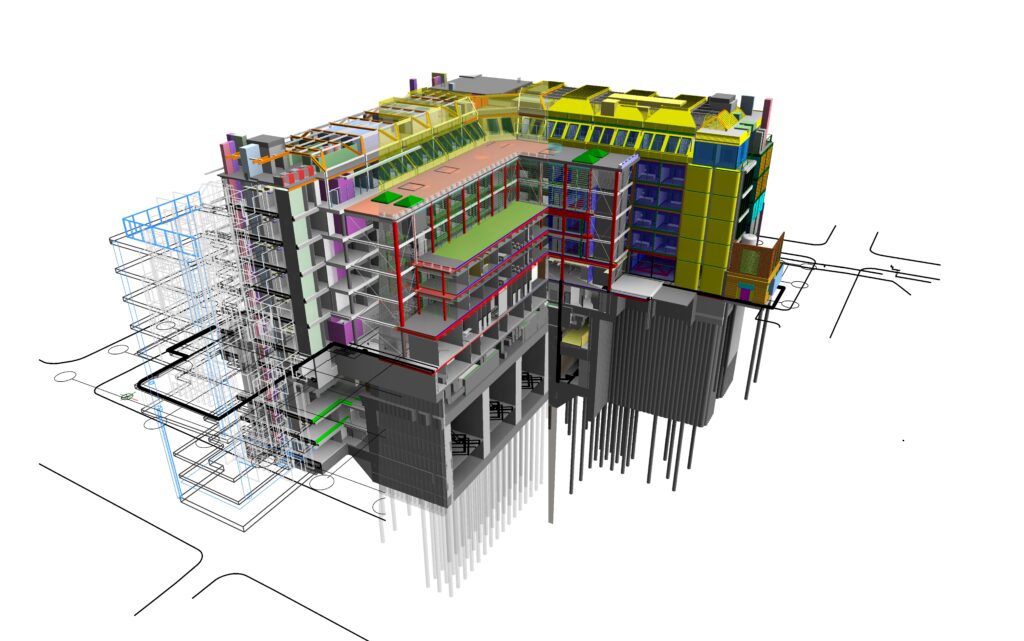
At Bouygues UK, we recognise that the successful implementation of smart technologies in healthcare requires careful planning and execution. Our approach begins with robust designs and procurement methods to ensure that digital strategies remain relevant and effective from the initial construction phase through to long-term operation. Building Information Modelling (BIM) plays a crucial role in this process, enabling efficient design, management, and maintenance of healthcare facilities.
We also emphasise the importance of modular construction and Design for Manufacture and Assembly (DfMA). These innovative methods allow for the creation of repeatable facilities with standardised components and layouts, making it easier for staff to navigate and operate within the building. This approach not only enhances operational efficiency but also minimises environmental impact by reducing waste and lowering carbon emissions.
The integration of smart systems in healthcare facilities is essential if we are to modernise healthcare and improve patient outcomes. At Bouygues UK, we are dedicated to delivering smart hospitals that leverage the latest technologies to enhance patient comfort, communication, and engagement.
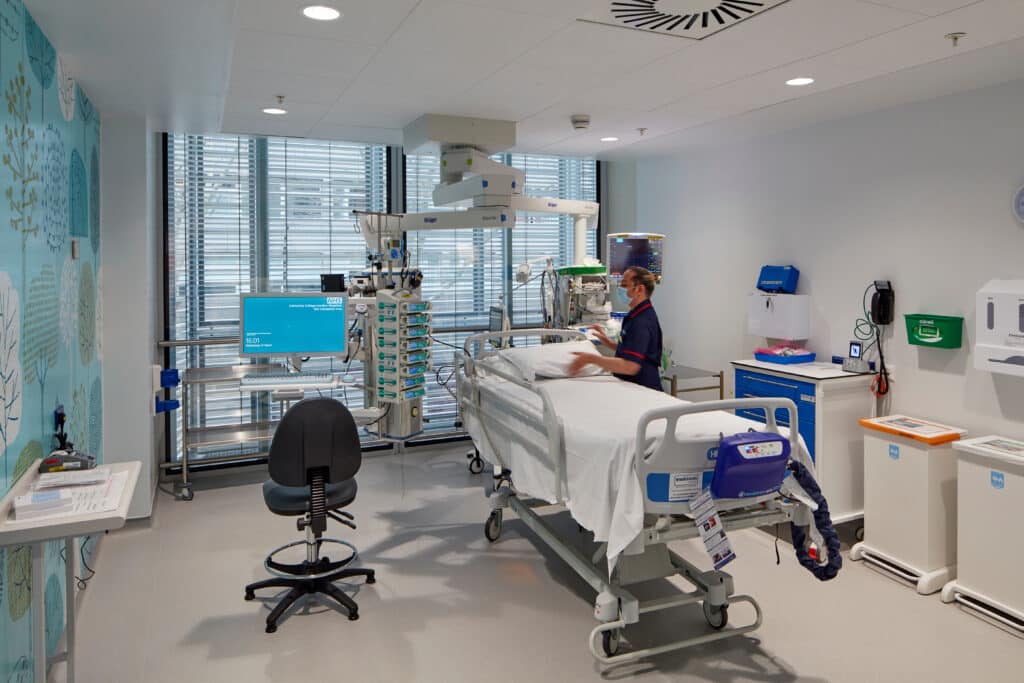
As we continue to build and design the hospitals of the future, our focus remains on providing health professionals with the high-quality facilities they need to deliver the best possible care. Through projects like Humber River Hospital and Oriel, we are demonstrating the transformative power of smart technologies in healthcare, setting new standards for patient experience and operational excellence.


